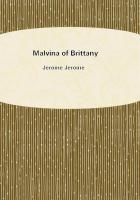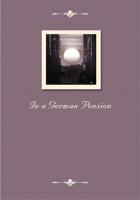Driscoll's ears directly from the lady suffering the loss. She was a woman of uncompromising integrity, who felt it her duty to make known to this gentleman the following facts: She had just left a studio reception, and was standing at the curb waiting for a taxicab to draw up, when a small boy--a street arab--darted toward her from the other side of the street, and thrusting into her hand something small and hard, cried breathlessly as he slipped away, "It's yours, ma'am; you dropped it." Astonished, for she had not been conscious of any loss, she looked down at her treasure trove and found it to be a small medallion which she sometimes wore on a chain at her belt. But she had not worn it that day, nor any day for weeks. Then she remembered. She had worn it a month before to a similar reception at this same studio. A number of young girls bad stood about her admiring it--she remembered well who they were; the Inseparables, of course, and to please them she had slipped it from its chain. Then something had happened,--something which diverted her attention entirely,--and she had gone home without the medallion; had, in fact, forgotten it, only to recall its loss now. Placing it in her bag, she looked hastily about her. A crowd was at her back;nothing to be distinguished there. But in front, on the opposite side of the street, stood a club-house, and in one of its windows she perceived a solitary figure looking out. It was that of Miss Driscoll's father. He could imagine her conclusion.
In vain he denied all knowledge of the matter. She told him other stories which had come to her ears of thefts as mysterious, followed by restorations as peculiar as this one, finishing with, "It is your daughter, and people are beginning to say so."And Miss Strange, brooding over these instances, would have said the same, but for Miss Driscoll's absolute serenity of demeanour and complete abandonment to love. These seemed incompatible with guilt; these, whatever the appearances, proclaimed innocence--an innocence she was here to prove if fortune favoured and the really guilty person's madness should again break forth.
For madness it would be and nothing less, for any hand, even the most experienced, to draw attention to itself by a repetition of old tricks on an occasion so marked. Yet because it would take madness, and madness knows no law, she prepared herself for the contingency under a mask of girlish smiles which made her at once the delight and astonishment of her watchful and uneasy host.
With the exception of the diamonds worn by the Ambassadress, there was but one jewel of consequence to be seen at the dinner that night; but how great was that consequence and with what splendour it invested the snowy neck it adorned!
Miss Strange, in compliment to the noble foreigners, had put on one of her family heirlooms--a filigree pendant of extraordinary sapphires which had once belonged to Marie Antoinette. As its beauty flashed upon the women, and its value struck the host, the latter could not restrain himself from casting an anxious eye about the board in search of some token of the cupidity with which one person there must welcome this unexpected sight.
Naturally his first glance fell upon Alicia, seated opposite to him at the other end of the table. But her eyes were elsewhere, and her smile for Captain Holliday, and the father's gaze travelled on, taking up each young girl's face in turn. All were contemplating Miss Strange and her jewels, and the cheeks of one were flushed and those of the others pale, but whether with dread or longing who could tell. Struck with foreboding, but alive to his duty as host, he forced his glances away, and did not even allow himself to question the motive or the wisdom of the temptation thus offered.
Two hours later and the girls were all in one room. It was a custom of the Inseparables to meet for a chat before retiring, but always alone and in the room of one of their number. But this was a night of innovations; Violet was not only included, but the meeting was held in her room. Her way with girls was even more fruitful of result than her way with men. They might laugh at her, criticize her or even call her names significant of disdain, but they never left her long to herself or missed an opportunity to make the most of her irrepressible chatter.
Her satisfaction at entering this charmed circle did not take from her piquancy, and story after story fell from her lips, as she fluttered about, now here now there, in her endless preparations for retirement. She had taken off her historic pendant after it had been duly admired and handled by all present, and, with the careless confidence of an assured ownership, thrown it down upon the end of her dresser, which, by the way, projected very close to the open window.
"Are you going to leave your jewel there?" whispered a voice in her ear as a burst of laughter rang out in response to one of her sallies.
Turning, with a simulation of round-eyed wonder, she met Miss Hughson's earnest gaze with the careless rejoinder, "What's the harm?" and went on with her story with all the reckless ease of a perfectly thoughtless nature.
Miss Hughson abandoned her protest. How could she explain her reasons for it to one apparently uninitiated in the scandal associated with their especial clique.
Yes, she left the jewel there; but she locked her door and quickly, so that they must all have heard her before reaching their rooms. Then she crossed to the window, which, like all on this side, opened on a balcony running the length of the house.
She was aware of this balcony, also of the fact that only young ladies slept in the corridor communicating with it. But she was not quite sure that this one corridor accommodated them all. If one of them should room elsewhere! (Miss Driscoll, for instance).















